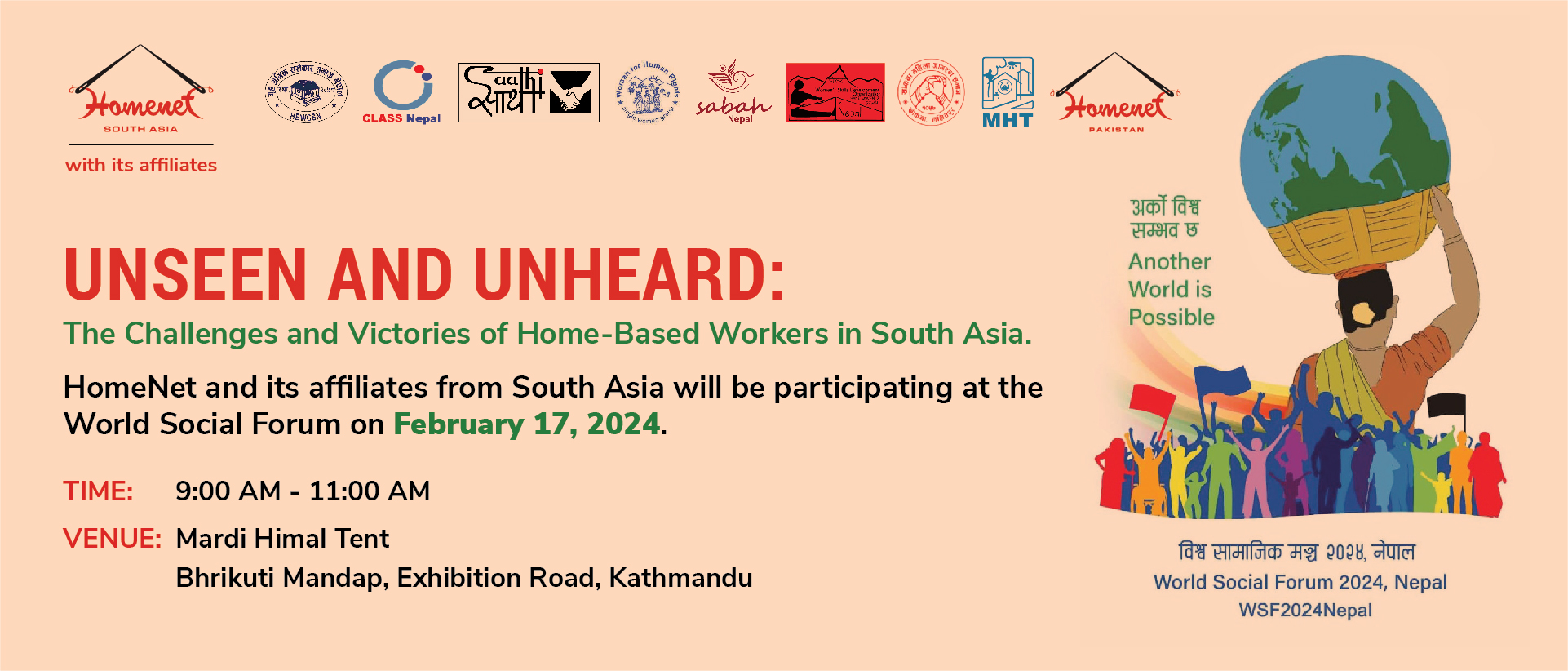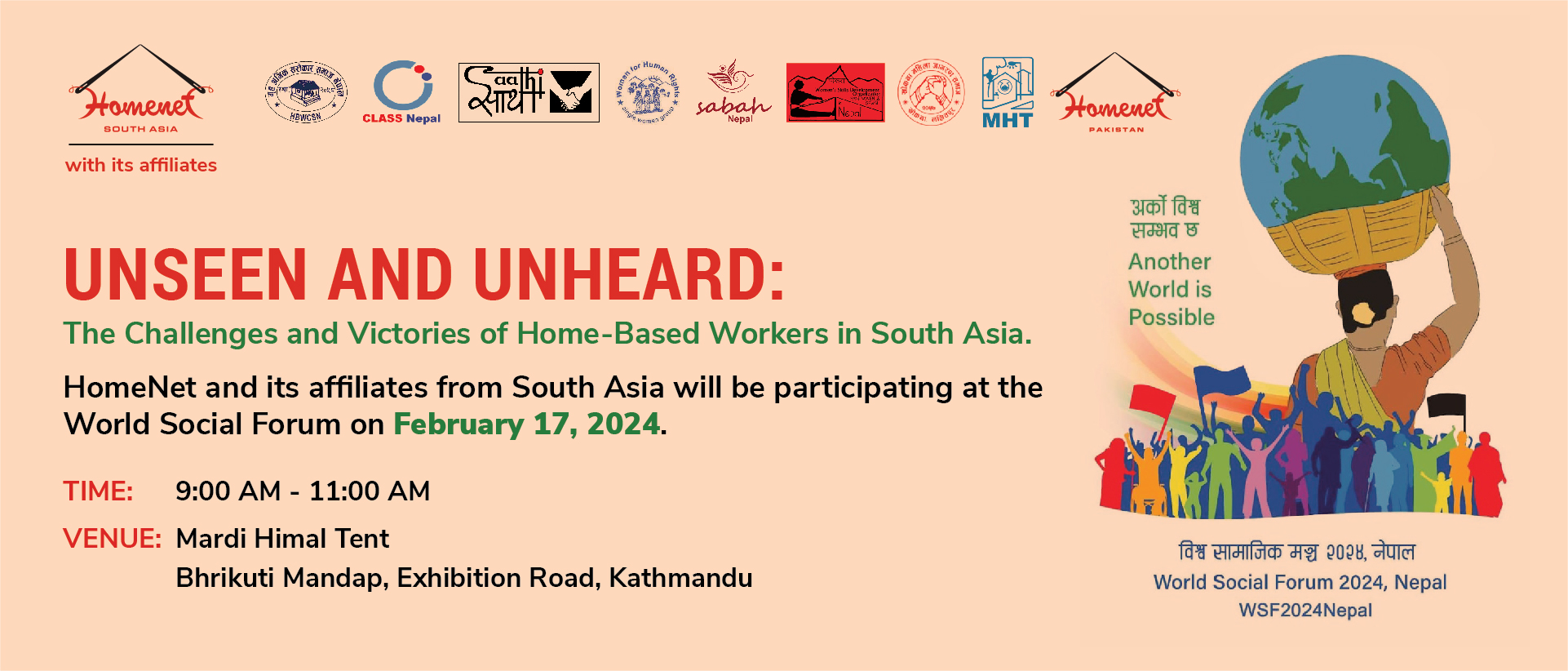


Concept note will be provided later.
-
VenueMardi Himal Tent
-
Cultural activityNo
-
Duration90 Minutes
-
Get in touchContact Person - Sristi Joshi Malla
-
Modalityphysical
-
LanguageEnglish
-
Other LanguageNepali
-
Contact Whatsapp
-
Contact Email
-
Name:
-
Name:Home Based Workers Concern Society Nepal
-
Name:Women For Human Rights (WHR)
-
Name:Center for Labour and Social Studies, CLASS Nepal
-
Name:Saathi
-
Name:SAARC Business Association For Home Based Workers Nepal
-
Name:KWAS
-
Name:WSDO
-
Name:HomeNet Pakistan
-
Name:Mahila Housing Trust
-
Economic Inequalities and Economic Justice
-
Labour, Migration, Modern Slavery and Trafficking
-
Health, Social Protection, and Equity
STATEMENT culminated from the session
UNSEEN AND UNHEARD:
The Challenges and Victories of Home Based Workers in South Asia
World Social Forum 2024
February 17, 2024 | Kathmandu, Nepal
HomeNet South Asia is a vibrant network of 62 organisations of 8 countries in South Asia that represent 1.2 million home based workers, 95% of which are women, the marginalized and poorest workers in the region. Home based workers produce goods and services within and around their homes and can be self-employed or sub contracted. There are over 67 million[1] HBWs in four countries of South Asia. In the last 24 years, HomeNet South Asia has catalysed the growth and strengthened the network in South Asia, in order to build unity and solidarity amongst HBW organisations across the region.
HomeNet South Asia (HNSA) and Home Based Workers Concern Society Nepal (HBWCSN) as co-organizers of this panel along with HNSA affiliates from Nepal and South Asia (CLASS Nepal, SAATHI, WHR, SABAH Nepal, WSDO, KWAS, MHT and HomeNet Pakistan) have formulated the statement below to incorporate the voices and concerns of home based workers in the larger agenda of the World Social Forum 2024.
- Define, recognize and register home based workers as workers and institute a National Policy for Home Based Workers in each country.
- Ratify and implement International Labour Organisation (ILO) Convention 177 on Home Work.
ECONOMIC JUSTICE
- Provide social protection and occupational health and safety to HBWs with appropriate resource allocation within a policy framework.
- Incorporate home-based workers and their contribution to the economy into official statistics such as Labour Force Surveys and Censuses.
- Build capacity to produce demand driven products for market access with an integrated approach of enhancing skills, quality products, packaging, linking with technology and branding.
- Recognise the role of HBWs in global and local supply chains and create an environment for collective bargaining and decent work.
VIOLENCE AGAINST HOME BASED WORKERS
- Make the world of work violence free for home based workers. Home is also their place of work, and therefore, it includes both the private and public spheres.
- Address and provide protection from gender based violence that HBWs face, in accordance with the ILO Convention 190 on Elimination of Violence and Harassment in the World of Work.
CLIMATE CHANGE
- To minimize the impact of climate change, home based workers need to be included in the climate change debate and be equipped with new technology, and capacity building for just transition.
- Home Based workers need access to information, training and dialogues on Disaster Risk Reduction and Preparedness so that they build Community based Climate Resilience strategies.
- Mitigation and adaptation plan and action need to be holistic and cater to HBWs, and take into account the loss and damage due to climate change as home is also their work place.
[1] www.hnsa.org.in